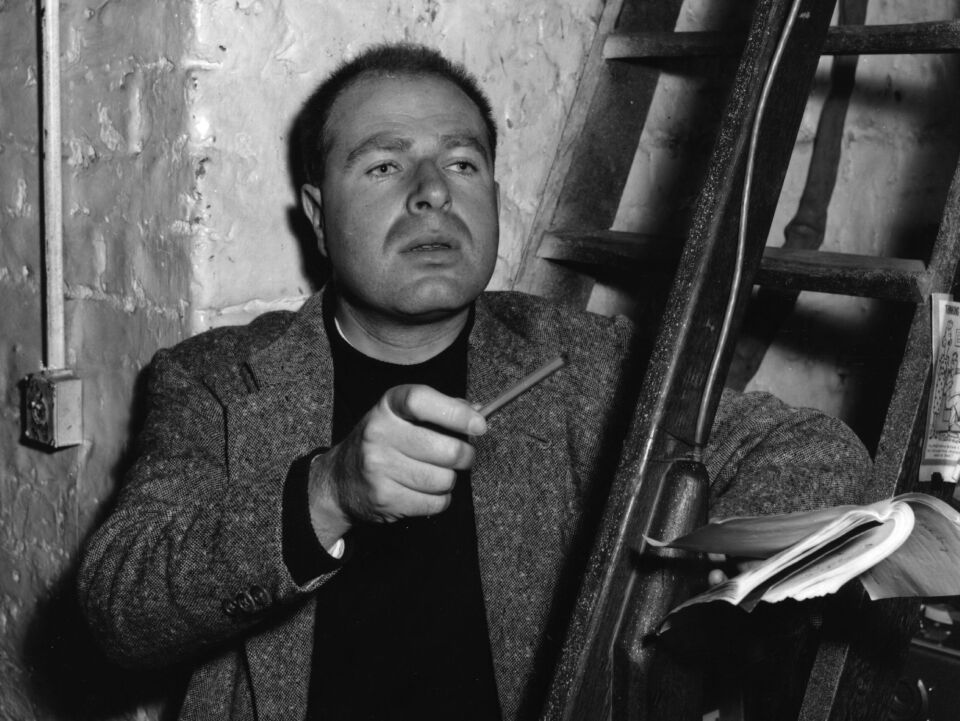With our free press under threat and federal funding for public media gone, your support matters more than ever. Help keep the LAist newsroom strong, become a monthly member or increase your support today.
Influential theater director Peter Brook dies at 97

Theater and film director Peter Brook has died. He was 97.
Brook's work spanned seven decades and ranged from star-studded Shakespeare productions to radical experiments in theater form. A defining moment in his career was the sensation he created in 1964; a play with a 26-word title seemed to say it all: The Persecution and Assassination of Jean-Paul Marat as Performed by the Inmates of the Asylum of Charenton Under the Direction of the Marquis de Sade, or Marat/Sade for short.

But all those words didn't prepare audiences for the freak show Brook had devised: drooling maniacs in rags rubbing elbows with audience members, shrieking from the stage and ending the night's political diatribe in a full-scale riot. Even Marat/Sade's curtain call was provocative. As the audience cheered, the cast, still twitching and drooling, squelched a standing ovation each night by applauding back mockingly from the lip of the stage, not dropping character until every audience member had left the theater.
"When the audience applauded, they were naturally applauding the actors, applauding the show," Brook told NPR in 1992. "But as the mad people came and parodied the audience's applause, it was I think a valuable moment of deliberate discomfort because suddenly they saw, yes, but it's not any old show, this show is about something."
'A Flash Of What Seems Like Truth'
Getting at the meaning of performance was Brook's lifelong quest, explored in everything from grand opera to a sort of primal, almost wordless theater. To illustrate the verbal gymnastics in A Midsummer Night's Dream, he put a Royal Shakespeare Company cast on trapezes; to explore the fragility of civilization, he turned mostly non-professional children into painted savages in the film Lord of the Flies. Brook also used hand-held cameras, unusual in 1963, to give Lord of the Flies a spontaneous, unscripted feel.

And he played with form far more aggressively in his theater work, searching for a down-to-earthiness he described in his book The Empty Space and made literal in his nine-hour adaptation of The Mahabharata. For that production, he took the colorful, stylized conventions of East Indian theater and anchored them in performance with things hard, practical and real — fire, earth and water.
"If you can juggle all the time with those two balls," Brook told NPR, "somewhere in between, where they meet, you sometimes can have a flash of what seems like truth."
Letting His Work Speak For Itself
Peter Stephen Paul Brook was born in London to Russian-Jewish parents. He didn't much care for formal education, but even as a child he managed to live and breathe culture. At 7 he reportedly performed his own four-hour version of Hamlet; and by his early 20s, he was directing at Stratford, one of the world's great classical stages. But painted sets and declaiming actors bored him, so he founded The International Centre for Theater Research, a Paris organization dedicated to experimenting with avant-garde notions — taking actors to a mountaintop in Iran to perform a play in an invented language that no one present actually understood. The idea, he said, was to explore how meaning was carried by the musical and rhythmic aspects of the spoken word.
That fascination with language was no less present when he dealt with great actors and great words — Paul Scofield, for instance, in Shakespeare's King Lear. Brook's stage Lear stripped the text down to bare essentials, and when he adapted his stage version for the screen, he applied all the avant-garde tricks available to filmmakers in 1971. The result was no longer Shakespeare's Lear. It was Peter Brook's Lear, a new conception that illuminated a celebrated text while deconstructing it. What should the audience take away? Brook let his work speak for itself. And when asked what he wanted audiences to take from his life and work, he told NPR much the same thing:
"The only thing that truly concerns me is what happens now, in the moment, whenever that moment is taking place. The rest is up to others in their present. It's no longer my problem."
Copyright 2023 NPR. To see more, visit https://www.npr.org. 9(MDA1OTI3MjQ5MDEyODUwMTE2MzM1YzNmZA004))









